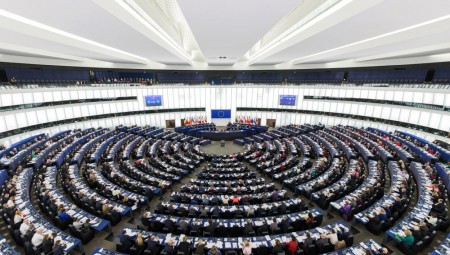The European Parliament introduces new rules for more charging stations and greener marine fuels
Easiest to use charging stations
Members of European Parlament managed to agree provisions that by 2026, electric car charging stations with a power of at least 400 kW will have to be located at least every 60 km along the routes of the TEN-T core network, with network capacity increase to 600 kW by 2028.
For trucks and buses, such charging stations should be provided every 120 km. They should be installed on half of the EU's main roads by 2028, with an output of 1400 kW to 2800 kW depending on the road. EU countries must ensure hydrogen refueling stations are located at least 200 km along the main TEN-T network by 2031.
Users of alternative fuel vehicles must be able to pay easily at charging points (with payment cards or contactless devices and without the need to have a subscription) and the price of these fuels will have to be displayed for kWh, kg or per minute/session. MEPs have pledged that the Commission will set up an EU "database" on alternative fuel data by 2027 to provide consumers with information on the availability, waiting time or price of different stations.
More green marine fuels
Members of European Parlament also adopted new rules for cleaner marine fuels. Ships will have to gradually reduce greenhouse gas emissions by limiting the amount of greenhouse gases in the energy they use (below 2020 levels) by 2% from 2025 onwards to 80% from 2050 onwards. This will apply to ships of 5,000 gross tonnage, which in principle account for 90% of CO2 emissions, and to all energy used on board or between EU ports, and to 50% of energy, used on voyages where the port of departure or arrival is outside the EU or in the outermost regions of the EU.
To significantly reduce air pollution in ports, from 2030 onwards container ships and passenger ships will be required to use shore power for all power needs while berthed in major EU ports.
Next steps
The new rules on alternative fuel infrastructure were adopted by 514 votes to 52 with 74 abstentions. The new rules on sustainable marine fuels were backed by 555 votes to 48 with 25 abstentions.
Once the Council approves both laws, the alternative fuel infrastructure rules will apply six months after they come into force, and the sustainable marine fuel rules will apply from January 1, 2025.
By adopting the new rules, Parliament responds to citizens' expectations to improve the existing transport infrastructure from an environmental point of view and to promote green shipping, as expressed in proposals 2(7) and 4(5) of the conclusions of the Conference on the Future of Europe.
